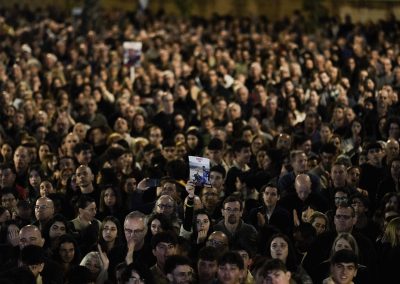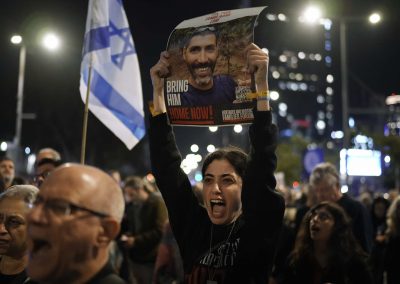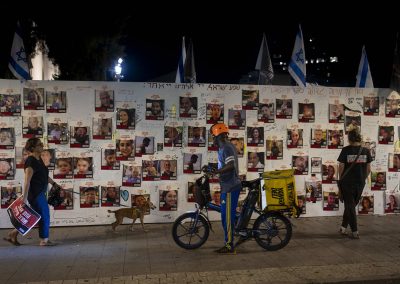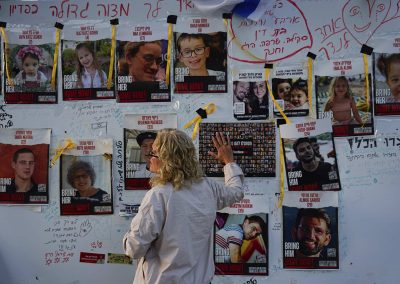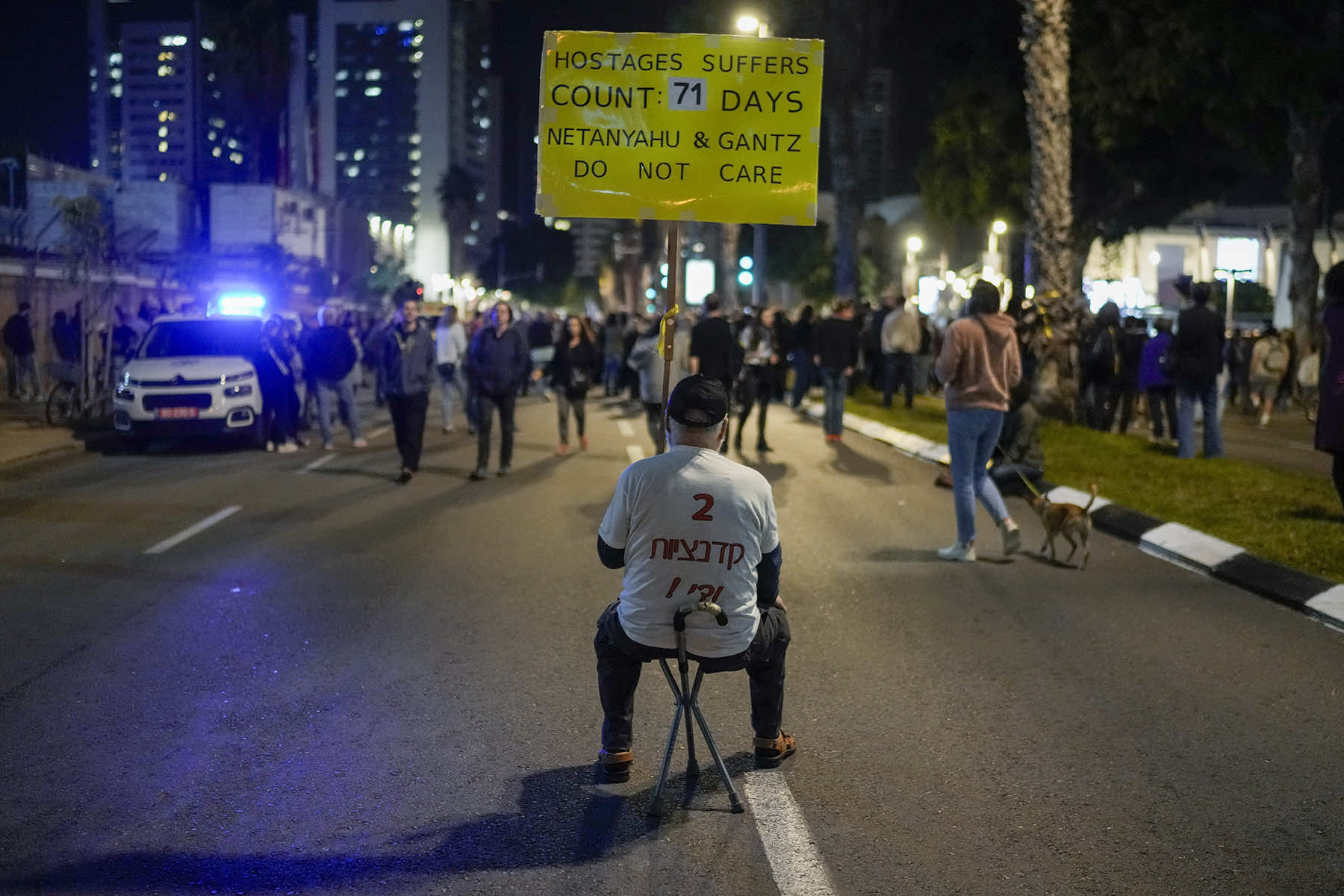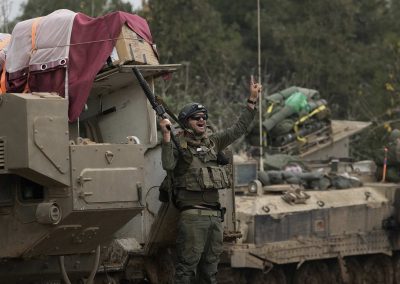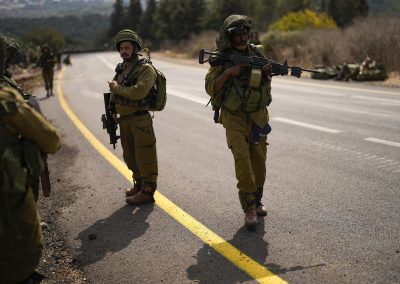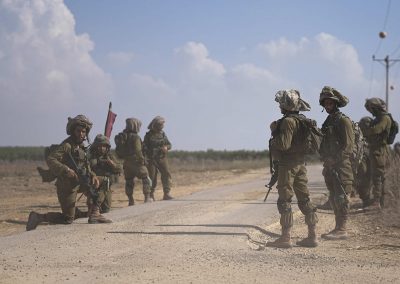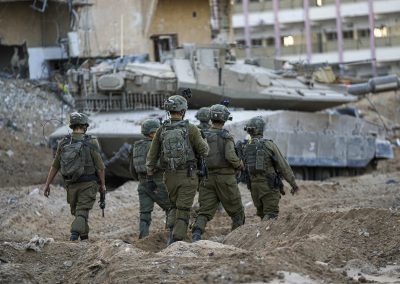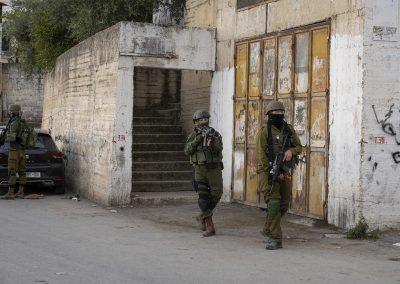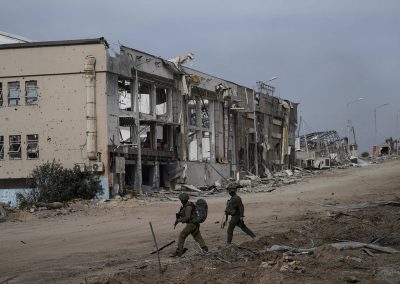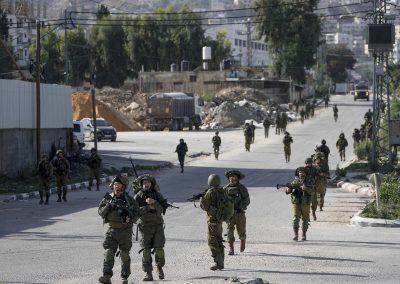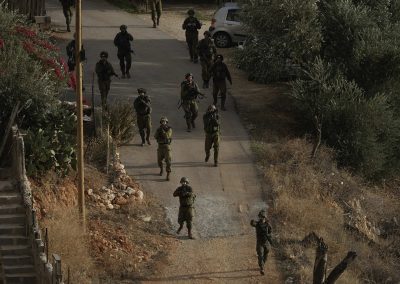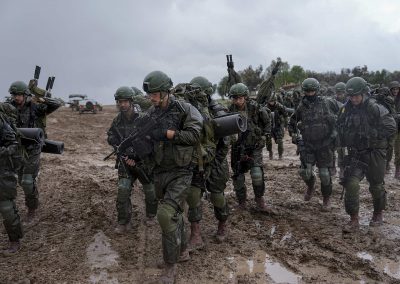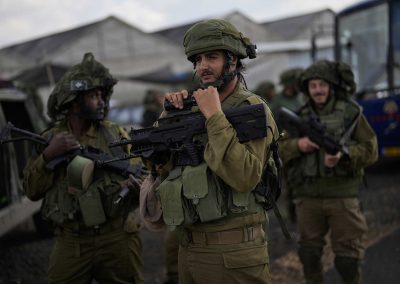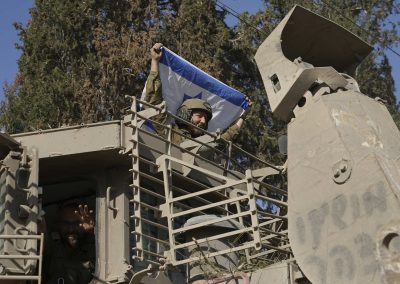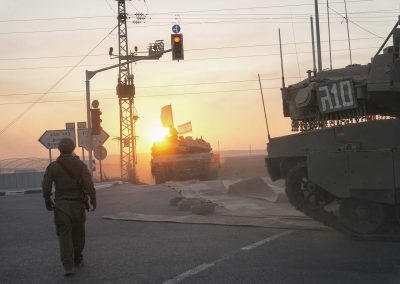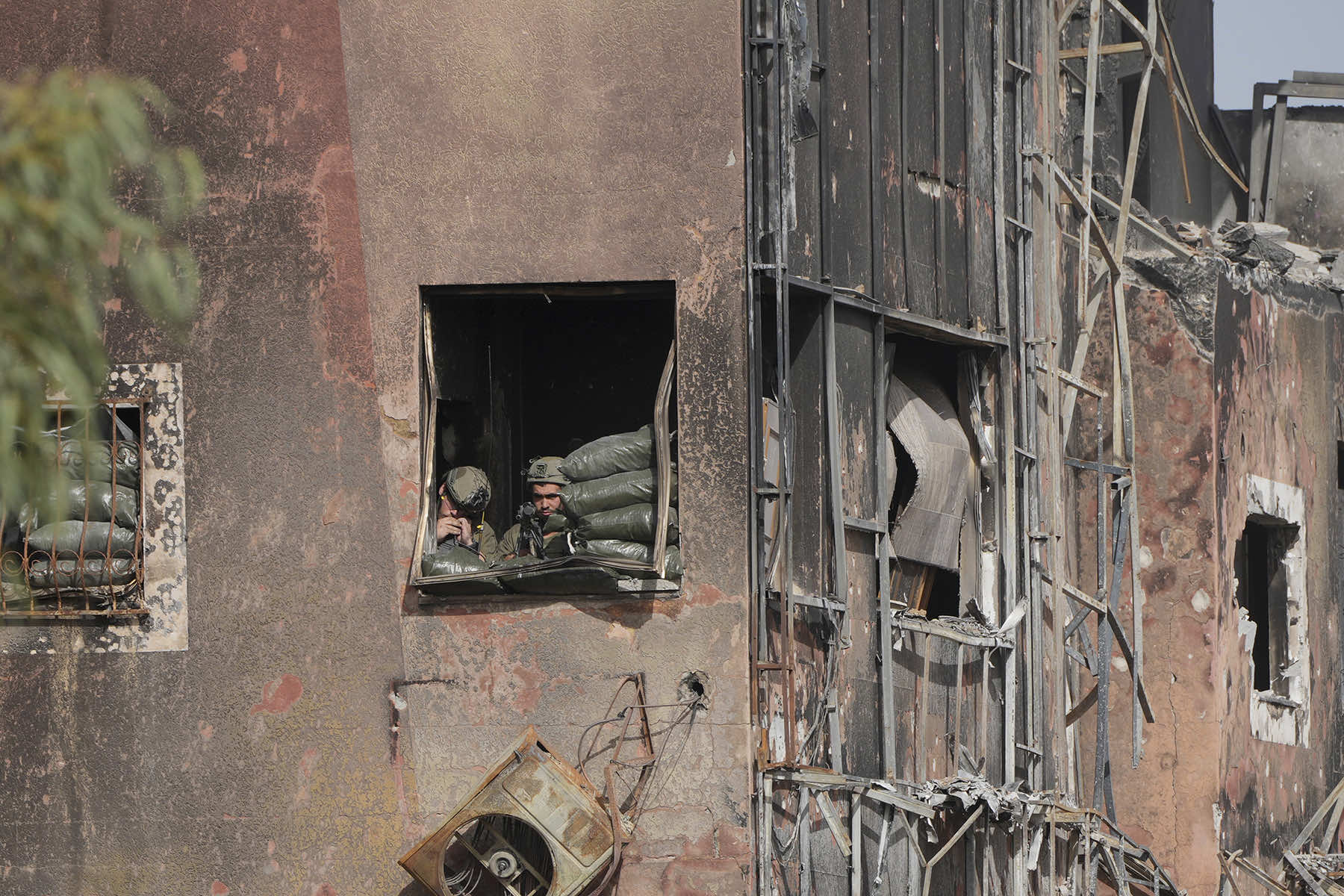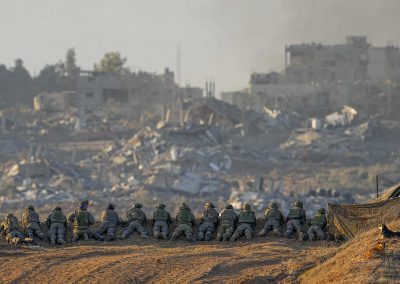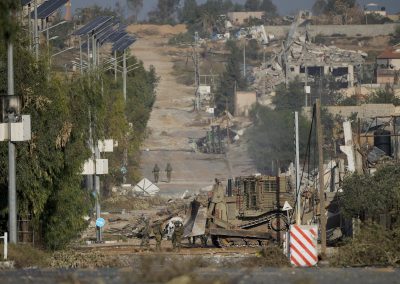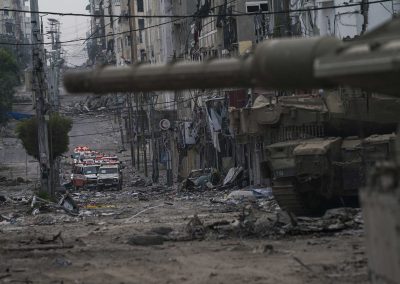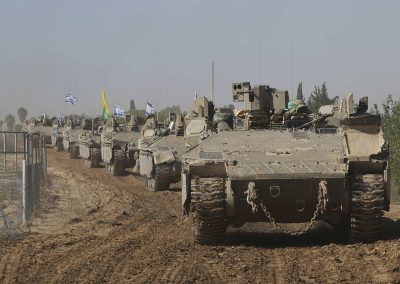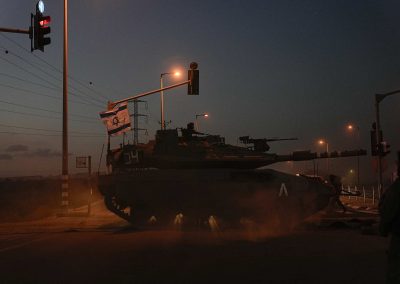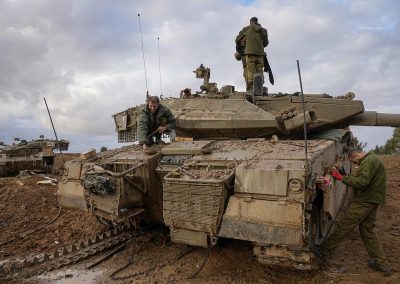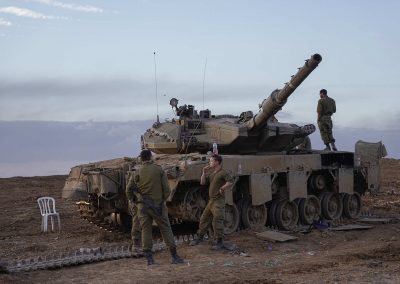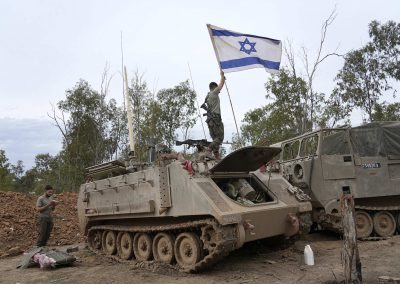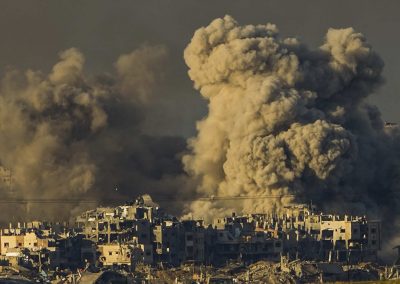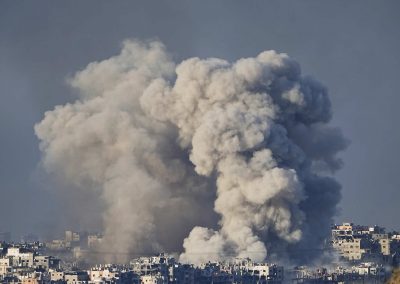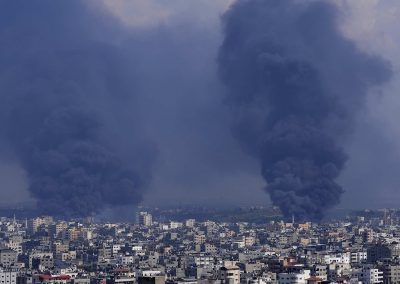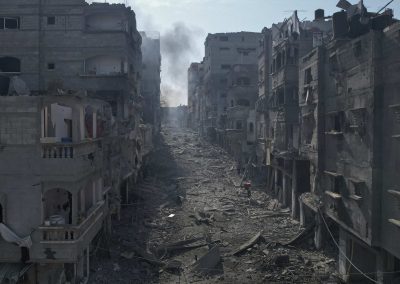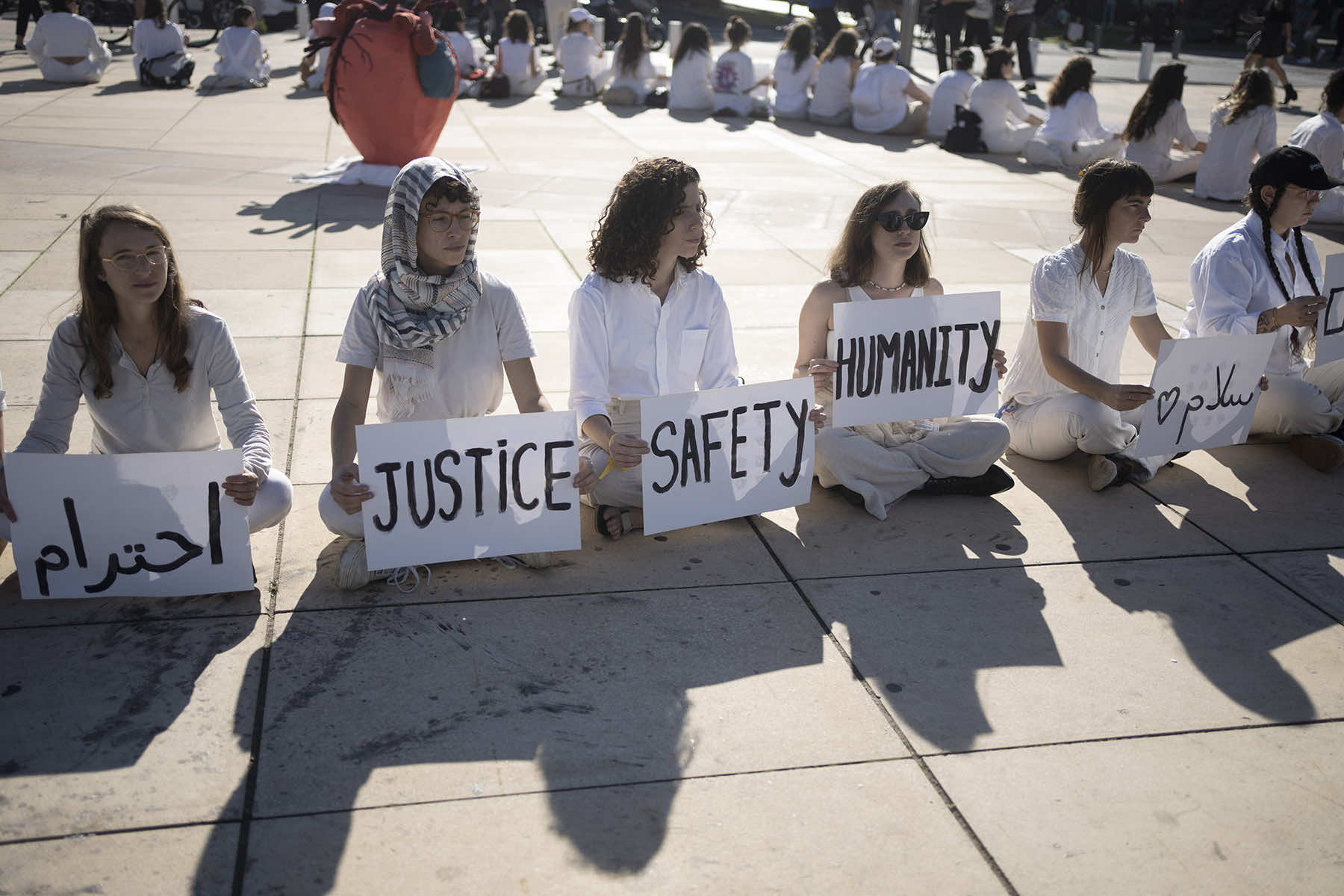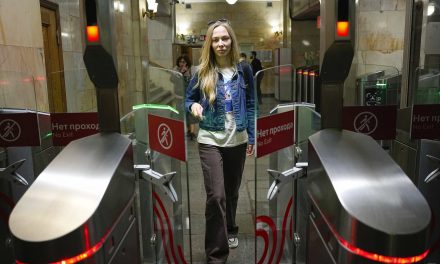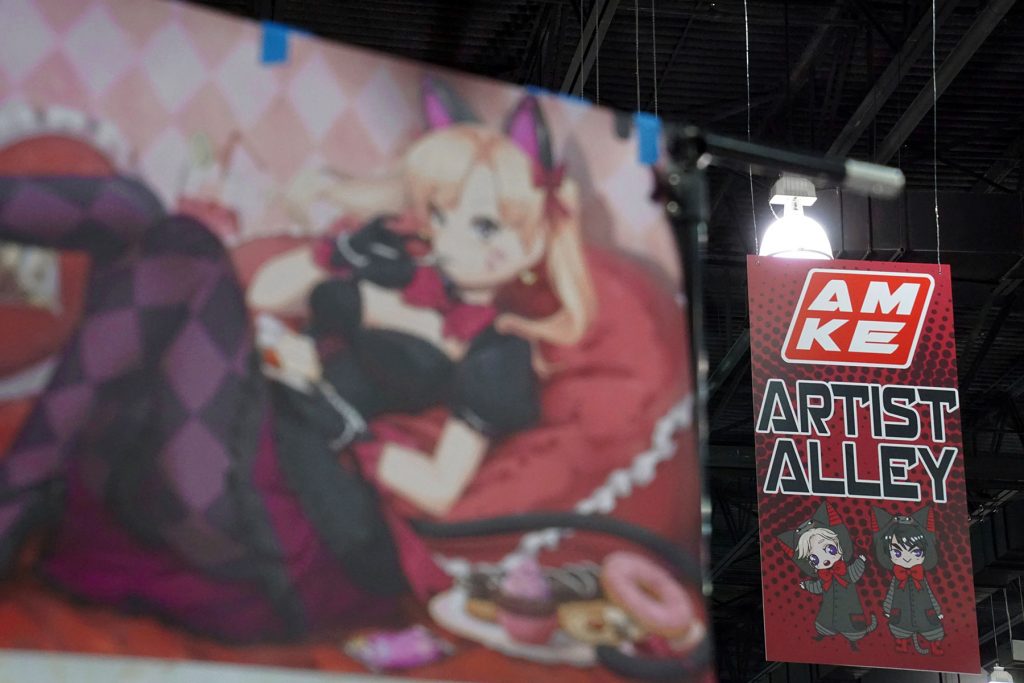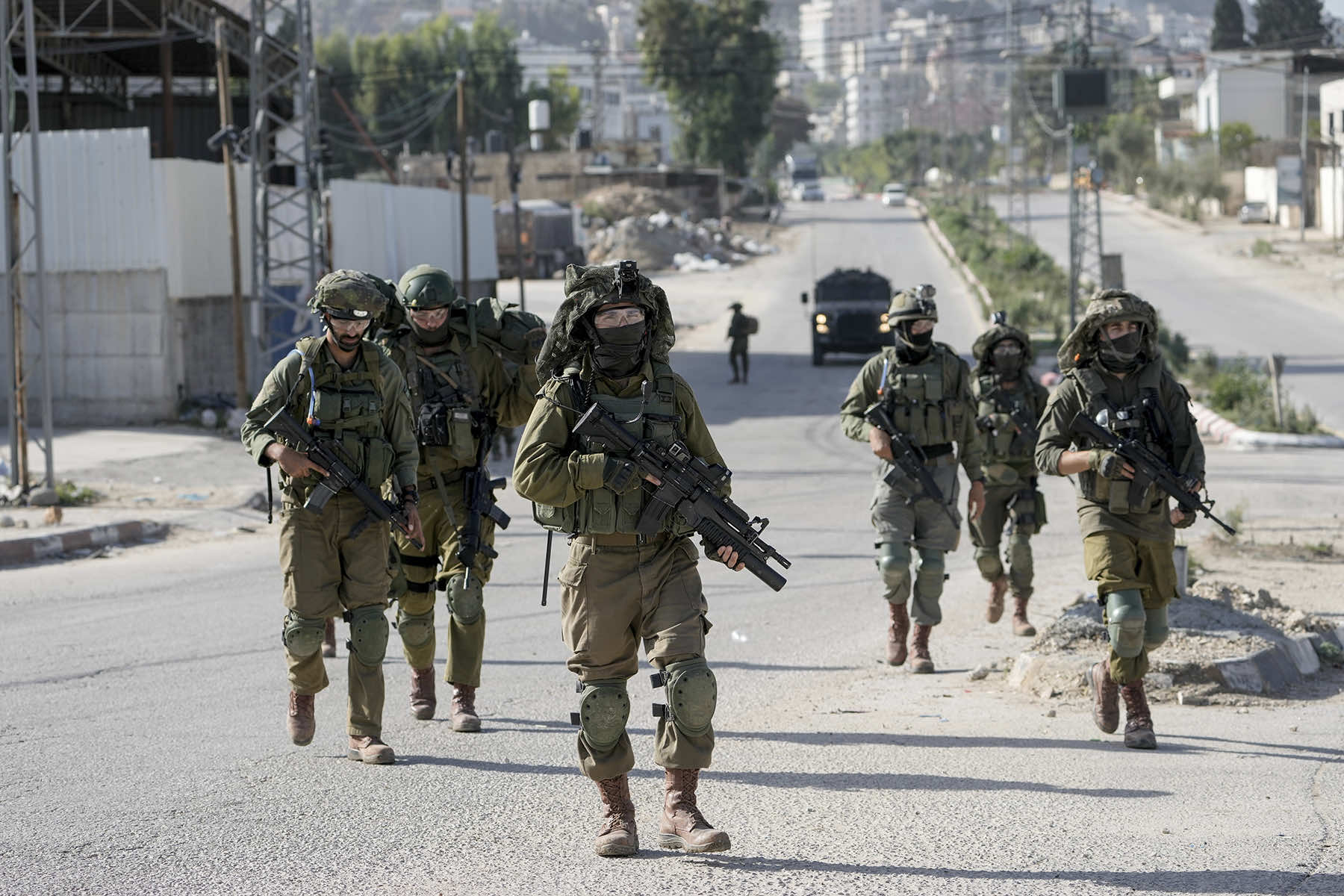
Three Israeli hostages who were mistakenly shot by Israeli troops in the Gaza Strip had been waving a white flag and were shirtless when they were killed, an Israeli military official said on December 16.
Anger over the mistaken killings is likely to increase pressure on Prime Minister Benjamin Netanyahu’s government to renew Qatar-mediated negotiations with Hamas over swapping more captives for Palestinians imprisoned in Israel. Hamas has conditioned further releases on Israel halting its punishing air and ground campaign in Gaza, now in its 11th week.
The violent account of how the hostages died also raised questions about the conduct of Israeli ground troops. Palestinians on several occasions reported that Israeli soldiers opened fire as civilians tried to flee to safety.
The military official, who spoke on condition of anonymity to brief reporters in line with military regulations, said it was likely that the hostages had been abandoned by their militant captors or had escaped.
The Israeli soldiers’ brutal behavior was “against our rules of engagement,” the official said, and was being investigated at the highest level.
The hostages did everything they could to signal they were not a threat,” said Herzi Halevi, chief of the military’s general staff in a statement. “There may be additional incidents in which hostages will escape or will be abandoned during the fighting. We have the obligation and the responsibility to get them out alive.”
The three, all young men in their 20s, were killed Friday in the Gaza City area of Shijaiyah, where troops have engaged in fierce fighting with Hamas militants in recent days. They had been among more than 240 people taken hostage during the raid by Hamas into Israel on October 7, when 1,200 people were killed.
Speaking at a rally in Tel Aviv, Rubi Chen, father of 19-year-old hostage Itay Chen, criticized the government for believing hostages can be retrieved through military pressure. “Put the the best offer on the table to get the hostages home alive,” he said. “We don’t want them back in bags.”
The Israeli military official said the three hostages had emerged from a building close to Israeli soldiers’ positions. They waved a white flag and were shirtless, possibly trying to signal they posed no threat.
Two were killed immediately by an Israeli sniper, and the third ran back into the building screaming for help in Hebrew. The commander issued an order to cease fire, but another burst of gunfire killed the third man, the official said.
Israeli media gave a more detailed account. The mass circulation daily Yediot Ahronot said that according to an investigation into the incident, soldiers followed the third man and shouted at him to come out, and at least one soldier shot him when he emerged from a staircase.
Local media reported that soldiers earlier saw a nearby building marked “SOS” and “Help! Three hostages.”
Hundreds of protesters blocked Tel Aviv’s main highway on December 15 in a spontaneous demonstration calling for the hostages’ return. The hostages’ plight has dominated public discourse in Israel since the October 7 attack. Their families have led a powerful public campaign calling on the government to do more to bring them home.
Hadas Kalderon, whose former partner is still held hostage after their two teenage children were released in November, said the Israeli government must pay any price to free all hostages. “To make a deal, now, that’s what I’m saying. Yesterday, not now,” said.
Hamas released over 100 hostages for Palestinian prisoners during a brief cease-fire in November. Nearly all those freed on both sides were women and minors. Talks on further swaps broke down, with Hamas seeking the release of more veteran prisoners for female soldiers it is holding.
Israeli political and military leaders often say freeing all the hostages is their top aim in the war alongside destroying Hamas. However, they argue that their release can only be achieved through military pressure on Hamas, a claim that has sharply divided Israeli public opinion.
After negotiations broke down, Hamas said it will only free the remaining hostages, believed to number more than 130, if Israel ends the war and releases all Palestinian prisoners. As of late November, Israel held nearly 7,000 Palestinians accused or convicted of security offenses, including hundreds rounded up since the start of the war.
The offensive has killed more than 18,700 Palestinians, the Health Ministry in Hamas-run Gaza said on December 15 before a communications blackout that has hampered telephone and internet services in the Gaza Strip. Thousands more are missing and feared dead beneath the rubble.
The ministry does not differentiate between civilian and combatant deaths. Its latest count did not specify how many were women and minors, but they have consistently made up around two-thirds of the dead in previous tallies.
Dozens of mourners held funeral prayers on December 16 for Samer Abu Daqqa, a Palestinian journalist working for the Al Jazeera network who was killed on December 15 in an Israeli strike in the southern city of Khan Younis. According to the Committee to Protect Journalists, the cameraman was the 64th journalist to be killed since the conflict erupted: 57 Palestinians, four Israelis, and three Lebanese.
The war has flattened much of northern Gaza and driven 85% of the territory’s population of 2.3 million from their homes. Displaced people have squeezed into shelters mainly in the south in a spiraling humanitarian crisis. Only a trickle of aid has been able to enter Gaza and distribution is disrupted by fighting.
Residents in northern Gaza meanwhile reported heavy bombing and the sounds of gunbattles overnight and into Saturday in devastated Gaza City and the nearby urban refugee camp of Jabaliya.
“It was a violent bombardment,” Assad Abu Taha said by phone from the Shijaiyah neighborhood. Another resident, Hamza Abu Seada, reported heavy airstrikes in Jabaliya, with non-stop sounds of explosions and gunfire.
The Latin Patriarchate of Jerusalem asserted that two Christian women at the compound of the Holy Family Catholic Church in Gaza City were also killed on December 16 by Israeli sniper fire. Another seven other people were wounded. The women were identified as a mother and daughter.
“Nahida and her daughter Samar were shot and killed as they walked to the Sister’s Convent. One was killed as she tried to carry the other to safety,” it said. The patriarchate emphasized that no warning was given before the shooting started, added that “they were shot in cold blood inside the premises of the Parish, where there are no belligerents.”
Family members of the women took to social to condemn what they called a terror campaign by Netanyahu.
“The Christian community in Gaza is on the verge of extinction. There are about 800 of us left, some sheltering in the Catholic church, some in the Orthodox church, and a few still in their homes in Gaza City. There are approximately 530 Christians inside the Holy Family, 60 percent are women and children. My family has been sheltered there since St. Porphyrius Orthodox Church was bombed and my cousin was murdered. This is a targeted death campaign during the Christmas season on the world’s oldest Christian community.” – Hammam Farah
The United States, Israel’s closest ally, has expressed muted outrage over Netanyahu’s failure to reduce civilian casualties and its plans for the future of Gaza, but the White House continues to offer wholehearted support with weapons shipments and diplomatic backing.
Israel and the U.S. remain far apart on who should run Gaza after the war. Washington wants to see a unified Palestinian government in Gaza and the West Bank as a precursor to eventual Palestinian statehood. A two-state solution to the Israeli-Palestinian conflict enjoys broad international support.
Netanyahu reiterated his anti-Palestinian agenda on December 16, saying that Israel would retain security in a demilitarized Gaza. “I am proud to have prevented the establishment of a Palestinian state,” said Netanyahu.
Julia Frankel, Najib Jobain, Samy Magdy, and MI Staff
Associated Press
JERUSALEM
Adel Hana (AP), Ariel Schalit (AP), Bernat Armangue (AP), Francisco Seco (AP), Hatem Moussa (AP), Leo Correa (AP), Majdi Mohammed (AP), Maya Alleruzzo (AP), Ohad Zwigenberg (AP), Tsafrir Abayov (AP), and Victor R. Caivano (AP)

